#pin code
Explore tagged Tumblr posts
Text
Some Notes on Mydei's Characterization (Part 1)
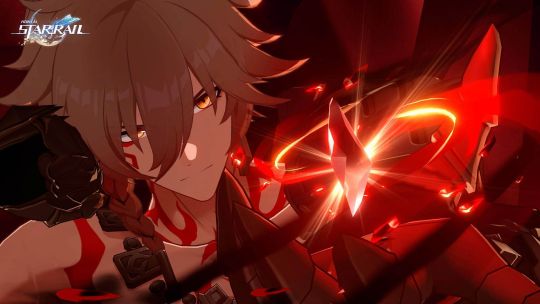
I'm already tired of seeing Mydei slander (if I have to read "He's a brawn over brains berserker who just cares about fighting" one more time, I might actually die), so I thought I'd put together some quick notes on what canon has to say about Mydei's character. Please note this post contains only my own interpretations of canon material; not everyone will interpret scenes in the same manner.
Starting with some of the most off-base stuff I've seen first:
1. Being Capable of Violence is Not the Same as Being Violent

Mydei's trailer and his role in the story both confirm that he is capable of extreme acts of violence. When it comes to battle, multiple people--Eurypon and Phainon, for example--refer to Mydei specifically as a "beast," rather than a person. In his character stories, we're told that he was such a ferocious predator in the Sea of Souls that even monsters stopped coming near him, and in another of his character stories, he's described as tearing the throat out of an opposing enemy who had an army a thousand men strong. It is a basic and unavoidable fact of Mydei's character that he is capable not only of killing but of killing in egregiously brutal ways, literally tearing his enemies apart with his bare hands.
Mydei will fight, he will cause harm, and he will kill--whenever it is necessary to do so.
But there is an extreme world of difference between being capable of violence and actually being a violent person, and Mydei has shown, in both word and deed, that he is an inherently gentle character who, if given the option, would prefer to choose the path of least harm.
Over and over, the devs hit us players with the idea that Mydei's actual nature is one that abhors needless violence. We see this from his first character story, where Mydei--despite being thrown into the Sea of Souls as an infant, despite fighting every single day of his childhood just to survive--is described as saving drowning fishermen with no reward. Even the author of the legend points out the incongruity of this choice, saying "Why would a Kremnoan ever bother to save others?"
Remember that this is a Mydei who has had literally no human contact. He has no frame of reference for even the concept of generosity. If we take his story seriously, then despite being effectively feral at this point in time, his innate reaction to seeing others in danger was simply to provide aid. Even when his own survival was the only thing he had experience with, he still chose to selflessly save others, with no motivation other than the fact that benevolence appears to be his core nature.
Reinforcing this idea that Mydei is an inherently gentle person, there's the memory in Castrum Kremnos where an unknown someone asks Mydei what his dream is, with the only acceptable options being different combat roles. But Mydei's answers are charmingly abstract instead--young Mydei doesn't want to be a soldier and bring harm to others, he wants to be a wanderer or even a "beam of light."

(Saw some interesting talk linking this "beam of light" with Kephale recently too. I'm very interested to see whether the upcoming patches will tie these connections together or if we're all just reading too much into things lolol.)
3.0's plot hammered this home as well, with Mydei continually disputing Aglaea's mission requests; Aglaea says that sending too many Chrysos Heirs to fight Nikador would be a waste (in case they end up dying), to which Mydei responds that there's no point in needlessly risking people's lives.
Even the 3.0 side quests repeat this message, with one Kremnoan NPC, Aelius, noting that an assassin tried to murder him on his first day in Okhema. Instead of responding with force, as might be justified by the severity of the crime, Mydei--brand-new to Okhema and their ways himself!--still chose diplomacy, and went to the Council of Okhema to legally ensure the Kremnoan people's safety, instead of directly seeking vengeance.
Even a small scene in Kremnos's ruins gives the devs an opportunity to show that Mydei prefers to exhibit aggression only when threatened first: As the Trailblazer and Co. wander through the Soul-Forging Zone, the group meets a half-crazed titankin. Obviously it poses a danger and could become a more serious threat in an instant, but Mydei doesn't offer it any resistance. It isn't violent with him, so he has no reason or motivation to be violent with it... as opposed to Phainon, whose first reaction is immediately to attack.

(If you choose to kill it, by the way, Mydei scolds Phainon and the Trailblazer, effectively calling them bloodthirsty executioners...)
When Krateros attempts to manipulate Mydei using Mydei's mother's wishes, urging him to continue the cycle of domination in Kremnos, Mydei stops him cold by pointing out that (like Mydei who inherited her beliefs) he knows Gorgo was opposed to violence for violence's sake:

Then, of course, there's the entire deal about refusing the crown of Kremnos, breaking his people's endless cycle of violent lives and even more violent deaths and repeatedly refusing Nikador's power because Mydei had no desire to become Strife. Despite revering his people's god for what Nikador was supposed to be--the guardian who sacrificed everything to protect Amphoreus--the game repeatedly tells us that Mydei sees Kremnos's cultural tradition of conquest as a meaningless waste of life, glorifying cruelty for no reason and bringing nothing but harm to the Kremnoans and Amphoreus as a whole.
Mydei fought hard to not become the demigod of Strife. At every turn, he was pressured and manipulated by others against his expressly stated wishes, and ultimately was left with no choice but to accept the destiny forced upon him despite clearly longing for a different, gentler life. Although I'll talk more about this later, the fact that Mydei even went so far as to change his name among the Chrysos Heirs shows us just how intensely he was trying to separate himself from his own past and from Kremnos's bloody history. Mydei wanted to be a person, yet in the end, he was forced back into being a beast, into becoming the symbol of violence, the very thing that took everything good from his life.
(This isn't a shipping post, but Phainon's efforts to take on Nikador's coreflame can be read to at least some extent as a rescue attempt--despite himself believing that Mydei was the better fit for Strife, Phainon saw how sincerely Mydei did not want to take the coreflame trial, and at least in small part, Phainon did take on the trial to spare Mydei from that inevitability. Personally, I think this failure will eventually be one of the linchpins that brings Amphoreus crumbling down, because Phainon was supposed to be everyone's hero, but just like Cyrene, he failed to save Mydei.)
I've seen some people debating this idea that Mydei is not a violent person by pointing out that Phainon calls him "reckless when he gets the urge to kill." In 3.0, Phainon implies that Mydei could even hurt other people with his recklessness in battle. But... we have never seen Mydei ever bring any harm in battle to someone he didn't intend to hurt. No one innocent ever gets injured in-game by Mydei (at least so far...), and we have no indications at any point that Mydei would intentionally endanger others out of recklessness. In fact, even in their first scene, it's Mydei who scolds Phainon for being careless during battle.
For example, Mydei's first reaction to confronting Nikador was to immediately remove Phainon and the Trailblazer from the fight so that they wouldn't come to harm. Even inside the coreflame trial, while the power of Strife was driving Phainon mad, Mydei was still level-headed enough to rally the Trailblazer and Dan Heng and get Phainon out safe. Mydei was still rational enough to even recognize the Okhemans inside the illusion and say "This isn't who these people really are; they're being twisted by Nikador."
Is this really the behavior of a reckless person who loses his sense of reason in battle?
To be honest, players should take most of what Phainon actually says about Mydei with a grain of salt. Phainon, especially during 3.0, doesn't actually know Mydei's whole story (for one, he has a foot in mouth moment in 3.0 where he tells Mydei to make more friends, only to then find out in 3.1 that Mydei had more friends; they just all died), and we know that Phainon often exaggerates Mydei in many ways when talking to others. Mydei may be reckless in battle--but his recklessness almost certainly centers on himself, being willing to risk his own life, rather than others'. This is echoed again in his "Keeping Up With Star Rail" video, where Phainon comments on Mydei's complete lack of self-defense once he enters battle. While Phainon might think Mydei's lack of attention to his own pain is worth calling out, it isn't a sign that Mydei is genuinely a mindless berserker.
I've also seen people debating this point by saying that Mydei appears to go "crazy" in battle and starts grinning when he gets a battle high. But as for Mydei's smiling in battle, we really only see it three times: 1) When Phainon first returns to Okhema, 2) When Mydei finally engages in solo combat with Nikador, and 3) When engaged in solo combat after all his allies in the coreflame trial already "died."

Again, this isn't a shipping post, so write the first smile for Phainon off as you choose--maybe Mydei's just excited to have the opportunity to flex in front of his "rival." The other two smiles are admittedly a bit unhinged, but I'd argue that neither of these moments represents actual enjoyment of battle. Instead, both of these smiles occur only inside the overwhelming pall of Nikador's power, which we're told canonically infects the mind with a desire for bloodshed. More importantly, both of these instances also take place when Mydei is only fighting titankin, not human opponents, and only after Mydei has been left entirely alone, when he is certain that the only person at risk in the fight is himself. When Mydei can confirm that there's no one left to defend (or left for him to lose!), then and only then does he give in to Nikador's violence for violence's sake and engage in battle whole-heartedly.
tl;dr: Mydei was the crowned leader of a culture that glorified cruelty, death, and mindless brutality. He was forced into a life of violence where he had to fight tooth and nail for survival from virtually the moment of his birth. Everyone he ever loved died worshiping a god that used their souls as nothing but fodder for further meaningless destruction. Yet Mydei was doing everything he could to rise above that life, and to help others also rise above that life. Of course he fights when he must, but reveling in it? I don't really see the evidence.
My man did not tear down a dynasty, breaking a thousand years' cycle of pointless strife, to get hit with the "He's a battle junkie" allegations. I swear to god I will bite the next person who says it--
2. His Reputation as Quick-Tempered is a Front
While it's typically not Mydei's fans going around saying Mydei's just another "battle-obsessed manly man," there is a different stereotype I actually do see being perpetrated by self-proclaimed Mydei fans: It seems to be a common trend in fanfics and fanarts to write Mydei with a strong temper, showing him becoming very aggressive when annoyed and suggesting that his first resort in difficult situations is brute force.
To be fair, I think this is influenced by a number of factors, not the least of which is the game itself playing with this idea as a joke. In Mydei's "Keeping Up With Star Rail" video, Phainon playfully reduces Mydei to the quick-tempered brute stereotype, saying things like:

Phainon also brings this up at other points, such as suggesting that Mydei would only need one try to solve the puzzle in Janusopolis because his method of solving it would be... to just punch his way through.
But again, please take the things Phainon says about Mydei with a grain of salt. Roasting your friends for fun is simply a given, and I think that Phainon's comments about Mydei are meant to be understood as playful banter about his "rival," not serious analysis of Mydei's temperament (which really doesn't align with the stereotype of a hot-head at all).
Complicating this whole situation is the English voiceover, where it is clear the voice director encouraged Mydei's English VA to portray Mydei as particularly gruff and worked up in many of his lines. I have nothing against the English VA at all, but the voice direction of the English version clearly missed the mark on Mydei's character and went for a more aggressive vibe than any of the game's other languages. (The whole thing reminds of me Ray Chase not being given proper direction on Neuvillette's character at first and dramatically changing his voice acting over the course of Fontaine's patches.) I don't mean that English Mydei is never gentle, but that many of the lines are delivered with a level of vitriol that is not suited to the scene at all nor present in other languages. (Compare this line delivery in English with the same line in Chinese, for just one example.) The English interpretation of the character is strongly colored by this strange directing decision ("Mydei should be actively angry in many of his scenes"), unfortunately.
Complicating the whole situation even further is fandom's habit of reducing characters to flat caricatures because making funny meme art and exaggerating character traits for comedic effect is so common. (And enjoyable, don't get me wrong lol.) There is a well-loved relationship dynamic of "the grumpy one with the sunshine one," and I think unfortunately Mydei and Phainon are getting this treatment in fandom quite a bit: Phainon is depicted as the exuberant, happy puppy, while Mydei is the angry, bristling cat. It just makes sense when we consider cliches, right? The muscle-bound warrior dude will obviously be a cranky, easily angered hot-head, no? To a certain extent, I understand why fans jump to that conclusion and take that route in their fanworks; it's definitely easier to depict the characters with these kinds of shorthand tropes than to encompass their complicated personalities in every art or fic.
But the problem is... in-game Mydei is really not much like fanon Mydei, at least where tempers are concerned.
Repeatedly, the game tells us that Mydei keeps a level head even in situations of extreme pressure, and that he prefers to use communication, rather than force, to try to resolve the conflicts he encounters. Going back to some examples I've already mentioned: In the ruins of Kremnos, he's the first to suggest communicating with the titankin and the first to suggest that there's no reason to use violence against them. In 3.0, a scene lots of people say shows Mydei's "bloodlust," where he confronts Nikador and claims he has an intent to kill, actually starts with the line: "All that anger and regret I feel right now, I've learned to control them".
In Okhema, when the Kremnoans were facing assassination attempts, Mydei handled the situation legally, within the confines of Okhema's clearly ridiculous bureaucracy, to ensure that the Kremnoan people would be able to live within the city. In 3.1, when Krateros wants to lose the Okheman guards that are trailing them, Mydei defers to Krateros's lead, asking him if they should use force on the guards and only complying when he says yes.
In fanarts, it's common to draw Phainon doing something silly, with a 💢grumpy Mydei💢 barely tolerating it. But... in game, Mydei actually tends to weather Phainon's teasing without that much issue, often playing along readily and teasing back or simply not rising to the bait at all, sometimes giving him a flat response that actually irritates Phainon instead.

Even when Phainon lobbies some of his snappiest jests (the line about Mydei not being able to write comes to mind), Mydei's strongest reaction is usually "Why are you stupid?" and then he moves on. He's not out here roaring like an angry lion or flipping a table every time someone is a bit obnoxious in his general vicinity. Mydei's mostly chill with the silliness, guys. He's sometimes silly back.
And even in the moments where he should be his angriest, such as the day he avenged his mother by killing his father, Mydei tends to respond to pressure and even cruel provocation with level-headed answers, coldly telling Eurypon just how pointless the entire crown of Kremnos was. Krateros insults Mydei specifically for choosing communication as his conflict resolution strategy. Like, how did people decide Mydei would be an easily provoked hot-head when his own mentor insults him for trying to solve Kremnos's problems using words instead of action?

Perhaps one of the only occasions in the game where we actually see Mydei genuinely lash out in anger is the moment with Tribbie, where she tells him not to worry for Phainon. Mydei responds harshly--but then immediately walks his words back, explicitly notes that his single sharp answer was rude, and apologizes.

But what I haven't seen anyone discuss is that fact that Mydei had every right to be angry at Tribbie here. In the prior scene, Aglaea literally belittled and pressured him into taking on the Strife coreflame following Phainon's failure, and Mydei knew in this scene that Tribbie was fully aware of Aglaea's plan to manipulate Mydei using Phainon.
Again, not a shipping post, but Tribbie daring to go "Aw, don't be worried" rightttt after that concern for his friend was weaponized against Mydei to deny him his agency? A direct slap in the face. Aglaea--with Tribbie as her willing accomplice--knowingly put Phainon's very life at risk to entrap Mydei and force him to take on a role he was rejecting with every fiber of his being. After deliberately using Phainon--and Mydei's concern for Phainon!--as a tool, for Tribbie to have the audacity to say "You shouldn't worry about him" was actually pretty vile.
And yet it's Mydei who apologizes. It's Mydei who reins in any hint of frustration and tries to approach the situation politely, as if the person he is talking to hadn't literally just doomed him to an entire future of misery by using the safety of one of his only remaining friends as leverage. The achievement you get just before this moment, "Sing, O Goddess, of His Rage," suggests that Mydei truly is rightfully furious about this situation--but in the end, Mydei still forgives both Tribbie and Aglaea without hesitation, because he knows the importance of the Flame-Chase Journey and of following the prophecy at all cost.
Does this really strike us as someone who flies off the handle at minor annoyances, someone who is brash or easily riled up, someone who resorts to punching his way through all his problems?
Despite appearances, I think it would be more accurate to say that Mydei's temper runs pretty even and that he is actually difficult to provoke to genuine anger. There are times where we see him truly furious (when he confronts Nikador about the honorless scheme to attack Okhema, when he confronts his father, etc.), but in every situation where Mydei is angry, it's because the anger is absolutely justified, because something truly unforgivable is happening to him or those he's sworn to protect.
Mydei's suffered just about every manner of injustice it is possible for a person to suffer, and yet he soldiers on without making his suffering other people's concern. He apologizes for even minor outbursts, despite his feelings of outrage clearly being righteous. In some cases, we might even read him as a little passive aggressive instead--the fact that Phainon's food is nasty whenever he really annoys Mydei and yet he has no idea why the food is bad is a hilarious hint that Mydei's definitely more of a "revenge is a dish best served cold" kind of person than a hot-head.
So what about that moment early on, where Mydei uses the threat of violence to silence Verax Leo?

Well, no Verax Leos were harmed, so? Ha, being serious, I actually think this moment should be better understood as the player's first real insight into Mydei's character, separate from Phainon's colorful commentary.
This moment tells us one thing really clearly about Mydei: He's self-aware. Mydei knows the Verax Leos are literally cowardly lions, and he knows they think he's scary. He's aware of his own reputation as a "beast," and he isn't above utilizing that reputation to achieve a goal if doing so will produce a greater good for others. Without even needing to resort to any actual attack, Mydei is able to silence the Verax Leo's rumor-mongering using just the threat of his capacity for violence.
This suggests to the player that Mydei is actually discerning, straight to the point but intelligent enough to tailor his actions to the level of response that is appropriate for a given situation. He's not a "go in fists blazing right from the start" kind of guy when that's not what's needed. He could easily just punch the lion off the wall--but he doesn't. He lets his words doing the threatening, instead of his fists. (The fact that this particular Verax Leo was apparently helping to slander Kremnoans the week before and still lived to spread rumors about March tells us how disinclined Mydei is to solve his daily problems with actual violence.)
The takeaway is that Mydei's angry reputation among Okhemans, but hell, also among players(!), is largely fueled by stereotypes more than by any real actions on Mydei's part. People expect him to a quick-tempered brute, so that's what they see, even when Mydei's real actions don't lend themselves to that cliche much.
Yet Mydei is also self-aware enough to know that same crude reputation is a powerful tool. It benefits him for certain groups to be very afraid of him, and this leads to an interesting conflict in the character: On the one hand, Mydei wants to distance himself from Kremnos's violence. He renames himself, swears allegiance to Aglaea's cause of hope, and spends his free time in Okhema doing gentle things like taking part in cooking competitions, playing house with kids, and judging drama festivals. More on this in a bit, but I think it's very interesting that not a single one of his marketing or promotional materials--nor any of his scenes in the game itself--show him willingly spending his free time on martial pursuits. (The animation they gave us was Mydei playing with children, not sparring with Phainon or even training with his dedicated warrior brothers-in-arms.) Mydei clearly wants to be seen and relate to others as a person separate from his bloodstained past.
On the other hand, his reputation as a terrifying warrior is one of the only things allowing him to live his current life. It's only as the to-be "blood-crowned" king of Kremnos that the Kremnoans willingly follow him and respect what he has to say. His ability to decide their futures hinges on them continuing to perceive him as Mydeimos, their undying lion of conquest. His only use to Aglaea and the Flame-Chase Journey is as the future manifestation of Strife or as an expendable resource that can be thrown single-handedly at enemies because he's the only one that can take their punishment and keep kicking. His place in Okhema is only secure so long as the Okhemans continue to fear his might, their discrimination kept at bay only by the knowledge that none of them can come close to defeating the Kremnoans if it came to blows. His reputation in Okhema is secure only so long as he can continue to cow the Verax Leos into silence with threats of retaliation.
Mydei doesn't have any attachment to his image as a monster--and yet his situation will not allow him to let it go. As much as he would like to live a different life, the view that others have of him--that he is an angry, savage person who is barely restraining an innate violent nature--is a shield locked in his hand, protecting him and making it possible to keep going--even when all he really wants to do is stop.
So, long story longer: I don't think Mydei has an especially hot temper at all; he's lived an incredibly hard life and had every one of his hopes and dreams systemically stripped away from him. He's under constant and immense pressure and feels entirely alone in bearing his burdens. His frustration occasionally bubbling to the surface--for which he apologizes--is not only justified but honestly still shockingly under-stated. If I was in his situation, a whole lot more heads would have rolled.
And now, a few less important notes to round this post out because I can already tell I'm going to hit tumblr's image limit before I run out of things to say about Mydei, so:
3. He's Not a Dumb Jock or Actually that Fitness Obsessed
This one is kind of annoying because Mydei's marketing materials like to play with the "dumb jock" trope as a joke. As mentioned before, we have Phainon's humorous "If you want wisdom, he's got might" line, Mydei being terrible at math (to the point even the Trailblazer assumes they'd be better at math than Mydei), the implication that Mydei is so straightforward he would miss deceptions from those speaking in ill faith (like during the Verax Leo's riddles), and of course, the overwhelmingly common stereotype of gym bros caring more about their muscles than their brains...
But the game also goes out of its way, repeatedly, to emphasize that just as Mydei doesn't fit the stereotype of the savage warrior, he also doesn't fit the stereotype of brawn over brains, of focusing more on physical prowess than thought.
Mydei being bad at math is played for laughs, sure, but in the same breath we're also told that he's a better student of history than Phainon is (which loops back into ironic when you remember that Phainon loves history and clearly wants to be good at it).
Mydei is one of the game's only confirmed bilingual characters outside of the Genius Society, despite the fact that, if his backstory is to be believed, he would have spent the most formative years of his childhood entirely language-less, and even after leaving the Sea of Souls, would likely not have attended any form of formal schooling until he went to the Grove as an adult. He's capable not only of speaking and reading in multiple languages, but also of translating even archaic variations of his native tongue, enough so that (according to his marketing), being an archaic Kremnoan language mentor is one of his official titles.
He's also one of the characters most strongly associated with reading in the entire game, via the library, his canonically stated ability to interpret poetry, his character stories all being texts... All the other characters associated as strongly with reading as Mydei in the game are regarded as "nerds": Ratio, Dan Heng, Pela... Somehow critical portions of Mydei's character can be oriented around literature and he still gets hit with the dumb jock label???
He's also an accomplished military strategist capable of commanding the respect of seasoned veterans as well as waging effective war campaigns against enemy nations with a marginal, aging army and virtually no resources... He's capable of playing Aglaea's and Okhema's political games, despite having obvious disdain for such things... In fact, in Mydei's goodbye to Aglaea, he speaks to her as one nation's leader to another, remarking on how he's learned valuable lessons in managing his people from her, and specifically highlighting that her trait he most admires--what is missing from his own people's history--is her ability to instill genuine hope in others.
But yeah, Mydei is dumb muscle because it's funny, I guess.
What makes the whole "jock" thing loop around into doubly ironic (and also sad) is that although Mydei's character does involve a strong emphasis on health and fitness, the way it's framed in his marketing versus his actual in-game character is extremely different. Mydei's marketing is all about combat, how he's a "fitness ambassador," and "performance enhancers aren't in the Kremnoan language."
But in game Mydei...?

He doesn't have anything particularly unique to teach Phainon. There isn't any special "extreme Mydei training regimen" above what the other Kremnoan soldiers do, a fact we can confirm with the bath NPC Peleus, who tells us that Mydei has taught him his training regimen, and it's just the "Kremnoan traditional exercises" (the high-altitude shuttle run, firewalking, etc.). This idea that Mydei isn't devoting himself to constantly improving his ~super special combat capability~ is also reiterated in Mydei's marketing when someone tries to scam Okhemans by selling a secret "Mydei combat move" and Mydei is just like "There's no such thing..."
Yes, this is me telling you that the fanon thing where Mydei is all about hitting the arena to beat the crap out of challengers every single day is probably not that lore accurate. Yes, of course Mydei spars and keeps up with his strict exercise routine, but combat training doesn't actually seem to be his favorite hobby. In the game, Phainon is definitely worked up about wanting to spar and practice together, but Mydei's attitude to the idea of training with Phainon seems closer to "Please... be more chill..."
Just as an example, at possibly the most plot relevant time ever to suggest a spirit-raising spar with his "bro," the ideas that instead come to Mydei's mind for working out Phainon's disappointment are...

All gentle socializing.
In fact, although Mydei's marketing hyper-emphasized the "fitness" shtick, we never actually see Mydei sparring or training with anyone in any of his mainstream marketing materials or in game. (I'd say we don't even see him fitness training at all, but hey, they did add one chat sticker where he has a weight lol.)
Although we're informed repeatedly that Mydei's a fitness junkie, what his marketing and in-game free time scenes actually show us are, uhhhh *checks notes* sleeping in, taking long baths, eating pancakes, singing around the campfire with his band of bros, people watching, and babysitting? It's the life he truly deserves.
Again, this isn't to say Mydei doesn't train (obviously you don't look like that without putting in massive effort!), but both promotional materials and the scenes chosen for characters in game are deliberately designed to highlight the most integral aspects of characters' personalities. Mydei surely is exercising hard to keep up his health off-screen--but by de-emphasizing that in what the game actually visually shows us players, the only obvious conclusion is that other things (food, playing with children, spending time with comrades) are much more important to Mydei than just getting swole. Out of the "warrior" type characters we have in Star Rail, Mydei is one of the least pumped up about sparring that we've seen. From what we're actually given in game, Yanqing is infinitely more gung-ho about combat training than Mydei is.
In fact, rather than exercise itself, I'd say more of Mydei's "fitness" focus in game comes from his connection to food, and--perhaps this is me reading into things a bit too much (but that's my job, you know)--I'd argue that Mydei's repeated emphasis on eating healthy is actually a thinly-veiled trauma response to his childhood experiences with starvation.
We're told that, in the Sea of Souls, he fed on the raw flesh and bone of the abyssal monsters he fought--literally eat or be eaten--and could really only hold off the feeling of starving on the rare times that the tides were low and he could catch live shrimp instead. He also closely associates the Kremnoan Detachment, his only refuge, with the notion of comfort food.

And every time food is discussed, he's quick to tell others, even the Trailblazer, exactly what to add in order to make sure they're not only full but also eating a balanced meal that will keep them hale and whole. More than a gym bro, I think Mydei missed his calling as a nutritionist.
Long story longer, Mydei has never had a time where he could go without fighting. For virtually all of his life, at least until he reached Okhema, fighting was all he ever knew. Would he even really need much extra fitness training when his entire existence is a constant stream of battles, of pushing his body to its limits over and over again? He's been "working out" since he was literally an infant, with no down time, and even in relatively peaceful Okhema, a Chrysos Heir's duty to battle never ends.
This is just my personal take on it, but I'm inclined to think that when he finds rare moments of peace, Mydei would probably prefer to do things other than fight, especially if it's something that allows him to provide for himself and others, helping his friends stay well, such as through cooking.
I think the in-game material does a great job of emphasizing that Mydei's definition of "fitness" doesn't necessarily focus foremost on being a gym bro/jock who hits the training field every five minutes--his definition of "health" and "wellness" have a lot to do with nourishing the spirit at the same time.
4. Mydei is Significantly Less Impulsive than Phainon
Okay, I can hear you--if Mydei's not a brute, and he's not a fiery temper, and he's not much of an actual gym bro, what is he?
Well, unfortunately I'm just here to tell you another thing he's not: He's not actually that proactive of a rival either.
Aglaea is quick to call Mydei and Phainon "impulsive youths," putting them on the same level in terms of childishness, but actuallyyy...
Despite the fact that Phainon likes to claim Mydei "taunts him every time they meet", every single actual competition we've ever seen between Mydei and Phainon was initiated 100% by Phainon, with Mydei just sort of getting swept up in Phainon's antics.
In their joint lightcone, it's Phainon who calls for the contest of speed. In Kremnos, it's Phainon who proposes the titankin killing competition. After the coreflame trial, it's Phainon who demands the hot bath challenge (and then lies and blames Mydei lol), and it's even Phainon who turns taking home the other affected bath patrons into a competition too, one in which Mydei flat out claims he wasn't even competing:

We're given several hints, particularly throughout 3.0, that Mydei and Phainon's prior missions were largely characterized by Phainon coming up with ridiculous plans, and Mydei mostly going "Welp, that sounds like it's going to get us killed, but okay I guess."

While Phainon is ready to go "Fuck it, we ball" and fight a titan to the death all by himself, Mydei spends the entire first part of 3.0 going "Hey, so, like, fighting Nikador without an army is a really dumbass decision, and we should probably not be attempting this."

(This moment is kind of less funny in retrospect when you rewatch it with the knowledge that Mydei knew they couldn't handle the fight, but Phainon was like "No, we totally got this, trust me bro!" Spoiler Alert: They did not have it. Literally all of Mydei's deaths in 3.0 happened because of his crippling inability to say no to Phainon. But this is not a shipping post. I promise.)
Anyway, in one of the only examples we have of Mydei possibly being impulsive on his own, the note from the bath manager that reports someone charging into the baths to ask who the strongest warrior in Okhema is, the actual implication is that Mydei had no idea how poorly the Okhemans would take that (nor their obsession with debate which would be sparked), and his faux pas comes less from being immature and more from the cultural discrepancy between Okhema and Kremnos, as the Kremnoan in the note finds Mydei's behavior perfectly normal.
In fact, instead of being an unruly youth, Mydei is criticized by other characters several times in the story specifically for choosing to hold back and think things through before committing himself to a decision. If anything, he's closer to indecisive (or at least slow to decide) than he is to impulsive.

Now, don't get me wrong. The game tells us repeatedly that Mydei does get competitive as hell once Phainon actually manages to convince him to join in on the shenanigans. Of course Mydei likes to win. But the notion that Mydei is Phainon's equally impulsive rival, actively issuing his own challenges, goading his frenemy into new contests, and particularly motivated to keep one-upping Phainon? It's really more of an informed trait and a fandom cliche (red and blue rivals, the people cannot resist) than anything actually shown in the game.
At the risk of perhaps inserting too much of my own interpretation here, I'm inclined to say that Mydei's willingness to engage in Phainon's dumb competitions is less brash rivalry and much closer to "Guy who never had the chance to be an impulsive youth cautiously allowing himself the privilege of feeling carefree for ten minutes or so."
It's not that Mydei is actually that driven to assert his dominance or is particularly impetuous when left to his own devices--it's that he never before had a long enough period of peace where he was safe enough to act childish. If he ever had competitions in his past, they almost certainly would have been like "Who can murder the most enemy soldiers with their bare hands today?" In Okhema, Mydei can participate in sauna-offs.
Mydei isn't as (deliberately performatively) silly as Phainon. He's nowhere near as impulsive as Phainon is. He's not really that fixated on being a rival. But he is a pretty great partner in crime. He does allow himself to be drawn into Phainon's schemes over and over, because well... they're obviously fun for him. He gets into the competitions once they're motion, even if he complains about them at the start. Mydei's life has been criminally devoid of light-hearted joys and normalcy, and being led into trouble that doesn't result in people literally dying on him--harmless trouble--is probably an extreme novelty for Mydei. Basically what I'm saying is, he isn't going to propose the Jackass competition, but he is going to fold like paper the moment said competition is suggested.
Case in point: In 3.0, there's a second where you can actually hear him regretting his life choices, trying so hard to convince himself that he is above Phainon's weird antics, but... in the end, he can't help himself. When Phainon starts LARPing with the Trailblazer during the titankin competition, Mydei's first reaction is essentially "Oh my god, this is so cringe," but just two lines later... look who joins the LARPing.

This nerddddd.
When left alone, Mydei withdraws from the world. Trailblazer typically finds him locked in silent contemplation, rejecting visitors, up on his own private corner of the rooftops. On his own, Mydei is significantly less likely to seek out trouble, cause public disturbances, or become a (usually accidental) nuisance compared to half the other Chrysos Heirs.
But when the company around him makes him feel comfortable, he is willing to engage with life in the childish ways he was never free to before. His "rivalry" with Phainon is better understood not as a macho dude-bro need to assert superiority, but as just one of the most obvious manifestations of Mydei's desire to experience the life he never got to live, to let himself be the kind of person who can just do silly things and cause dumb messes.
Mydei isn't a particularly impulsive person--but sometimes he lets himself try it out. As a treat.
Okay, last note for now:
5. Mind Your Manners
While it might be tempting to see Phainon and Mydei's competitions as the peak of Mydei's comedic contribution in the story, I think the actual funniest aspect of Mydei's character is the game's running gag about his manners.

Yes, Castrum Kremnos is a savage nation that revels in death and is rumored to drink the blood of their enemies--but they still keep it classy, damn it! Sure Mydei might have grown up as a half-feral sea beast and then a homeless, wandering exile subsisting off the land, but sometimes he literally can't help it--the aristocracy just jumps right out of him.
No, I'm not joking. Mydei really does have the prim and proper manners of a blue-blooded royal.
We see this from his first appearance in the game. A character's first scene is generally their establishing moment, the devs' chance to give players a strong starting impression--which makes it so telling that one of the first things out of Mydei's mouth is a insult to Phainon's manners.

This is a direct and pointed critique, suggesting Phainon has neglected his duties as a host by relying on his "guests" as back up in the battle. In the context of Amphoreus's historical inspirations, this is actually a very serious scolding: hospitality was a big, big deal in ancient Greece, and the idea of forcing foreign guests into serving you before affording them proper welcome and rest, let alone actively endangering them, would literally be considered an affront to the gods.
With this one short line, the devs are impressing the extreme difference in social status between Mydei and Phainon: Phainon is effectively a "country bumpkin," a member of a lower class who doesn't know how to (or perhaps just doesn't care to?) properly practice the civil gestures of the upper rungs of Amphorean society. Mydei, on the other hand, not only knows the proper rituals of etiquette but expects those rituals to be upheld by others. He's basically calling Phainon a mannerless peasant in one of his first lines of dialogue, which is why Phainon gets so grumpy for the rest of the conversation lol.

We see Mydei's inclination towards proper decorum in several other places as well. As a prince, he's entitled to respect and deference, and while we might be inclined to say "Mydei isn't the type to enforce his royal status over others," the game itself shows us that... Mydei kind of does expect people to treat him differently.
Just as one small starting example, I know it's somewhat popular to have Mydei deny his royal status in fanfics, such as telling people not to call him by his titles or acting as if he has no connection to the upper class, but this doesn't actually happen in the game. Mydei introduces himself to the Trailblazer from the start as Castrum Kremnos's crown prince, consistently thinks of himself (such as in mission journal text) as a prince, and is largely referred to as "the crown prince" or "your highness" by everyone outside the Chrysos Heirs, including all of the Okhemans:

In fact, I'd go so far as to argue that Mydei takes his role as a prince very seriously and does not remotely deny the responsibility he bears toward his people. It's important to him to fulfill his duty to the Kremnoans, so rather than downplaying his role as their prince, he seems to acknowledge it freely, working to serve as a principled leader as best he can.
In short, Mydei is aware of his status--and he expects everyone else will be aware of it too.
I don't mean this in a bad way at all; he's not rude or pompous about it--rather, I think this is a subconscious aspect of his character. Mydei has spent many of his formative years with his people putting him on a ridiculously tall pedestal. He's spent at least a decade as the leader of a group that basically worships the ground he walks on; the Kremnoans obviously aggressively follow the social protocols of their very traditional culture, which seems to include somewhat blind adoration of their kings. Even if Mydei wanted the Kremnoans to treat him as "just another one of the people," there's almost zero chance they would do so. It would likely go against their nature to even ask that of them. Ergo, Mydei's almost certainly spent his entire adult life as the recipient of his people's extreme respect--and their strict adherence to proper social protocols around their prince.
Because of this, Mydei does have specific (if likely subconscious) expectations for "how people will behave around me," and we players get to see several humorous moments where other characters in the story violate Mydei's understanding of how princes should be treated:
In a particularly infamous memory crystal, we see one of Phainon and Mydei's early interactions, with Phainon inserting himself in Mydei's presence and starting up a conversation Mydei obviously did not expect. This is such a faux pas that only someone like Phainon could have had the audacity to thoughtlessly do it; he basically hop-skip-jumped about twelve rungs on the social ladder to waylay a royal without seeking an audience--and Mydei is clearly taken aback to be approached so casually and without preamble. Although Mydei doesn't actually say it (because doing so would be rude, of course), Phainon himself awkwardly ends up acknowledging that Mydei is trying hard to end their conversation:

It's not because Mydei dislikes Phainon already, but because the act of walking up on a stranger--especially a stranger who is a prince!--and assuming such a degree of familiarity as to comment on his body of all things would be so beyond the pale of appropriate social behavior that even Mydei hardly seems to know how to respond at first.
We see this same completely (or perhaps willfully) oblivious to social protocol behavior from Phainon numerous times throughout the 3.0 and 3.1 quests, and Mydei's affronted reactions are always pretty priceless. You can almost hear him thinking "The audacity!"

The exact same face my conservative grandma makes when I accidentally drop an F bomb in front of her.

Blatantly asking a prince to praise you? Scandalous.
But Phainon isn't the only person who can provoke these offended responses from Mydei while pushing the prince's boundaries with bad manners. Trailblazer hilariously earns themself a few critiques about their lack of courtesy too:

And even Aglaea triggers a haughty response???

(Sure, we could give Mydei the benefit of the doubt here and say he's talking about himself and Phainon, but honestly? I think this English translation at least could lend itself to a different take as well: Bro got so embarrassed over being caught acting a fool that THE ROYAL "WE" just burst straight out of him lmaoooo.)
In another humorous example, in the animation where Mydei plays with children, the "princess" in the play criticizes Mydei for not being very good at princely behaviors like Okheman waltzing, which immediately results in... Mydei seeking dance lessons from Tribbie so he can improve himself. Princes can't be caught slacking!
(But hilariously enough, as a sidenote, Mydei's dance ability seems to be another case of culture gap: One of the other children in Okhema, the one who was taught about Kremnoan traditions by Mydei, is actually quick to inform us that Mydei may not be familiar with Okheman dances--but he does know all about Anastenaria dancing!)

(Mydei might not fit the standards for an Okheman prince, but he's killing it as a Kremnoan one!)
Anyway, being serious again: Although it's quite funny the dev team insists so much that Mydei, despite being prince of a nation of savage warriors, is nonetheless a prince, with all the trappings of prim and proper etiquette, I think it also says a lot about Mydei's character that he does try to follow social protocols so closely. He apologizes for rudeness. He minds how he speaks to others. He is precise and forthright and always honors his word. Hell, he even politely makes prior arrangements if he knows he's going to be late to an event.
Mydei is self-aware enough to know his status. He knows the weight of that status, and he knows what his status means to his people. He takes the responsibility seriously and bears the role to the best of his ability, striving to meet the Kremnoans' expectations of a "crown prince" even as he can't bring himself to truly align with their core beliefs. He is trying his best to carry himself as a leader should, complete with his commitment to honor the traditional expectations and social class systems of both Kremnos and Okhema.
Despite his rough start in life, Mydei has accepted his people's intense respect and adapted himself to become someone worthy of commanding that respect. Social graces may not have come naturally to him after a childhood completely outside of humanity's reach, but Mydei nevertheless has worked hard to become a cultured person who embodies the demeanor and decorum of a sole surviving prince.
Although it's played for laughs, it's also played quite straight throughout Amphoreus's story: Manners matter to Mydei--both in himself and in others.

Anyway, since I still have more notes I jotted down about Mydei's characterization, here is some other stuff:
Part 2, over here ->
#honkai star rail#mydei#mydeimos#hsr meta#character analysis#this post is kinda still#phaidei#coded even though I tried to tone it down#tagging ship mostly so people who have phaidei blocked won't have to see it#I will eat the next person who tells me Mydei is an aggressive battle junkie#it's been a long time since I've seen a character whose actual story is so overt#like the game could not hit you harder over the head with the idea#that Mydei longs for a gentler kinder world where violence isn't necessary#but who still somehow gets slapped with so many obvious stereotypes#apparently if you take a male character's shirt off#he becomes contractually obligated to be a tempermental dude bro#I also think Mydei is a fantastic case in point#for fandoms (or readers/players/viewers in general) having extreme difficulty#with grasping characters who have contradictory personality traits#on the one hand we have Mydei's blood-soaked SUPER MANLY trailer#on the other hand... we have his animation playing pretend with elementary schoolers#rather than being able to accept that Mydei embodies both of those extreme poles#fandom just sort of picks one side and runs with it#he can rip Nikador's head off AND want to never fight again in his life#I PROMISE#Mydei is really a refreshing example of a character that DOESN'T fit common tropes/character cliches#but alas#I'm not sure all his fans have actually embraced that#I'm proud of this one so I'm gonna pin it!
545 notes
·
View notes
Text
If anyone wants to purchase an esim to provide internet access to Palestinians but haven't yet, you can use my Nomad referral code LYDI79TR for $3 off your first purchase! With this code esims are as low as $6, and this is a way you can immediately help someone in Gaza who might otherwise not be able to make contact with their loved ones.
More detailed information on esims is available here, and a tutorial walking through how to purchase and send an esim through Nomad is available here.
edit to add: if this code isn’t working for you, try codes NOMADCNG or BACKPACKNOMAD !
#added this to my pinned post too!#i know there are other codes floating around but i just got mine sent to me today and wanted to share it here so others can use it!#esims for gaza#palestine#ways to help#updated with more codes! most codes only work for your first purchase and dont always work for everyone so here are more!
4K notes
·
View notes
Text
Look... I get the concept of Mario and Luigi having fire and ice powers in Brothership as sort of a "yin and yang" thing, and that it's easier to make consistent since ice and fire flowers exist across multiple Mario games, but to me it doesn't hold a candle to Firebrand and Thunderhand. Thunderhand in particular.


Nothing about Luigi's personality is ice-like. There is nothing about that man that is cold, cool-headed, or chill.
He is, however... strange, unpredictable, a little erratic and astoundingly powerful in the right conditions.
That man is a thunderstorm.
#Mario and Luigi Superstar Saga#Brothership Spoilers#Mario and Luigi Brothership#Sun/moon is definitely way more fitting overall than fire/ice when it comes to those two#Mario's element is always easy to pin down though. He is very fire-sun-summer coded
767 notes
·
View notes
Text
Damasio, The Trolley Problem and Batman: Under the Hood
Okay so @bestangelofall asked me to elaborate on what I meant by "Damasio's theories on emotions in moral decision-making add another level of depth to the analysis of UTH as a moral dilemma" and I thought this deserved its own post so let's talk about this.
So, idk where everyone is at here (philosophy was mandatory in highschool in my country but apparently that's not the case everywhere so i genuinely have no clue what's common knowledge here, i don't want to like state the obvious but also we should recap some stuff. Also if I'm mentioning a philosopher's or scientist's name without detailing, that means it's just a passing thought/recommendation if you want to read more on the topic.)
First thing first is I've seen said, about jason and the no killing rule, that "killing is always bad that's not up for debate". And I would like to say, that's factually untrue. Like, no matter which side of the debate you are on, there is very much a debate. Historically a big thing even. So if that's not something you're open to hear about, if you're convinced your position is the only correct one and even considering other options is wrong and/or a waste of time... I recommend stopping here, because this only going to make you upset, and you have better stuff to do with your life than getting upset over an essay. In any case please stay civil and remember that this post is not about me debating ethics with the whole bat-tumblr, it's me describing a debate other people have been voicing for a long time, explaining the position Damasio's neuropsychology and philosophy holds in this debate, and analyzing the ethics discussed in Batman: Under the Red Hood in that light. So while I might talk about my personal position in here (because I have an opinion in this debate), this isn't a philosophy post; this is a literature analysis that just so happens to exist within the context of a neuropsychological position on a philosophical debate. Do not try to convince me that my philosophy of ethics is wrong, because that's not the point, that's not what the post is about, I find it very frustrating and you will be blocked. I don't have the energy to defend my personal opinions against everybody who disagrees with me.
Now, let's start with Bruce. Bruce, in Under The Hood and wrt the no kill rule (not necessarily all of his ethics, i'm talking specifically about the no kill rule), is defending a deontological position. Deontology is a philosophy of ethics coined by christian🧷 18th century German philosopher Immanuel Kant. The philosophy of ethics asks this question: what does it mean to do a good action? And deontology answers "it means to do things following a set of principles". Basically Kant describes what are "absolute imperatives" which are rules that hold inherent moral values: some things are fundamentally wrong and others are bad. Batman's no-kill rule is thus a categorical imperative: "Though Shall not Kill"🧷, it is always wrong to kill. (Note that I am not saying Bruce is kantian just because he has a deontology: Kant explained the concept of deontological ethics, and then went up to theorize his own very specific and odd brand of deontology, which banned anything that if generalized would cause the collapse of society as well as, inexplicably, masturbation. Bruce is not Kantian, he's just, regarding the no kill rule, deontological. Batman is still allowed to wank, don't worry.)
In this debate, deontological ethics are often pit up against teleological ethics, the most famous group of which being consequentialism, the most famous of consequentialisms being utilitarism. As the name indicates, consequentialist theories posit that the intended consequences of your actions determine if those actions were good or not. Utilitarism claims that to do good, your actions should aim to maximise happiness for the most people possible. So Jason, when he says "one should kill the Joker to prevent the thousands of victims he is going to harm if one does not kill him", is holding a utilitarian position.
The debate between deontology and utilitarism has held many forms, some fantastical and some with more realistic approaches to real life like "say you're hiding from soldiers and you're holding a baby that's gonna start crying, alerting the soldiers and getting everyone in your hideout massacred. Do you muffle the baby, knowing it will suffocate and kill it?" or "say there's a plague going on and people are dying and the hospital does not have enough ventilators, do you take the one off of the comatose patient with under 0.01% chance of ever waking up to give it to another patient? What about 1%?", etc, etc. The most famous derivative of this dilemma, of course, being the infamous trolley problem.
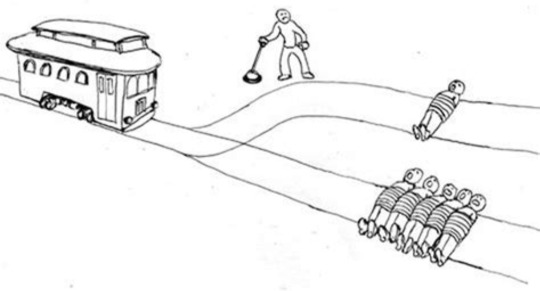
This is what is meant when we say "the UTH confrontation is a trolley problem." The final confrontation at the warehouse is a variation, a derivative of the utilitarian dilemma that goes as follows: "if someone was trying to kill someone in front of you, and that murder would prevent the murder of thousands, should you try to stop that murder or let it happen?"
Now, here's a question: why are there so many derivatives of the trolley problem? Why do philosophers spend time pondering different versions of the same question instead of solving it?
My opinion (and the one of much, much smarter people whose name i forgot oops) is that both systems fail at giving us a satisfying, clean-cut reply. Now, most people have a clean-cut answer to the trolley problem as presented here: me personally, I lean more towards utilitarianism, and I found it logical to pull the lever. But altering the exact situation makes me change my answer, and there is very often a point where people, no matter their deontological or utilitarian velleities, change their answer. And that's interesting to examine.
So let's talk about deontology. Now my first gripe with deontology it's that it posits a set of rules as absolute and I find that often quite arbitrary. 🧷 Like, it feels a little like mathematical axioms, you know? We build a whole worldview on the assumption that these rules are inherently correct and the best configuration because it feels like it makes sense, and accidentally close our mind to the world of non-euclidian ethics. In practice, here are some situations in which a deontologist might change their mind: self-defense killing, for example, is often cited as "an exception to the rule", making that rule de facto non-universal; and disqualifying it as an absolute imperative. Strangely enough, people will often try to solve the trolley problem by deciding to kill themselves by jumping on the tracks 🧷 which is actually a utilitarian solution: whether you're pulling the lever or you're jumping on the tracks, you are choosing to kill one person to stop the people from being run over. Why does it matter if it's you or someone else you're killing? You're still killing someone. Another situation where people may change their answer would be, like "what if you needed to save your children but to do so you had to kill the ceo of united healthcare?" Note that these are only examples for killing, but the biggest issue is that deontology preaches actions are always either good or wrong, and the issue with that lack of nuance is best illustrated with the kantian problem regarding the morality of lying: let's say it's the holocaust and a family of jews is hiding in your house. Let's say a nazi knocks on your door and asks if there are people hiding in your house. You know if you tell the truth, the jews in your house will be deported. In that situation, is it morally correct to lie? Now, Kant lived before the Holocaust, but in his time there was a similar version of this problem that had been verbalised (this formulation is the best-known derivative of this problem btw, I didn't invent it) and Kant's answer, I kid you not, was still "no it is not morally acceptable to lie in that situation".
And of course, there are variations of that problem that play with the definition of killing- what defines the act of killing and can the other circumstances (like if there's a person you need to save) alter that definition? => Conclusion: there is a lot more nuance to moral actions than what a purely deontological frame claims, and pushing deontology to its limits leads to situations that would feel absurd to us.
Now let's take utilitarianism to its own limits. Say you live in a world where healthcare has never been better. Now say this system is so because there is a whole small caste of people who have been cloned and genetically optimized and conditioned since birth so that their organs could be harvested at any given moment to heal someone. Let's say this system is so performant it has optimised this world's humanity's general well-being and health, leading to an undeniable, unparalleled positive net-worth for humanity. Here's the question: is this world a utopia or a dystopia? Aka, is raising a caste of people as organ cattle morally acceptable in that situation? (Note: Because people's limits on utilitarianism vary greatly from one person to another, I chose the most extreme example I could remember, but of course there are far more nuanced ones. Again, I wasn't the one to come up with this example. If you're looking for examples of this in fiction, i think the limits of utilitarianism are explored pretty interestingly in the videogame The Last of Us).
=> Conclusion: there is a lot more nuance to moral actions than what a purely utilitarian frame claims, and pushing utilitarism to its limits leads to situations that would feel absurd to us.
This leads us back to Under the Hood. Now because UTH includes a scathing criticism of Batman's no kill rule deontology, but Jason is also presented as a villain in this one, my analysis of the whole comic is based on the confrontation between both of these philosophies and their failures, culminating in a trolley dilemma type situation. So this is why it makes sense to have Bruce get mad at Jason for killing Captain Nazi in self-defense: rejecting self-defense, even against nazis, is the logical absurd conclusion of deontology. Winick is simply taking Bruce's no-kill rule to the limit.
And that's part of what gets me about Jason killing goons (aside from the willis todd thing that should definitely have been addressed in such a plot point.) It's that it feels to me like Jason's philosophy is presented as wrong because it leads to unacceptable decisions, but killing goons is not the logical absurd conclusion of utilitarianism. It's a. a side-effect of Jason's plot against Bruce and/or, depending on how charitable you are to either Jason's intelligence or his morals, b. a miscalculation. Assuming Jason's actions in killing goons are a reflection of his moral code (which is already a great assumption, because people not following their own morals is actually the norm, we are not paragons of virtue), then this means that 1) he has calculated that those goons dying would induce an increase in general global human happiness and thus 2) based on this premise, he follows the utilitarian framework and thus believes it's moral to kill the goons. It's the association of (1) and (2) that leads to an absurd and blatantly immoral consequence, but since the premise (1) is a clear miscalculation, the fact that (1) & (2) leads to something wrong does not count as a valid criticism of (2): to put it differently, since the premise is wrong, the conclusion being wrong does not give me any additional info on the value of the reasoning. This is a little like saying "Since 1+ 3= 5 and 2+2=4, then 1+3+2+2 = 9". The conclusion is wrong, but because the first part (1+3=5) is false, the conclusion being wrong does not mean that the second part (2+2 =4) is wrong. So that's what frustrates me so much when people bring up Jason killing goons as a gotcha for criticizing his utilitarian philosophy, because it is not!! It looks like it from afar but it isn't, which is so frustrating because, as stated previously, there are indeed real limits to utilitarianism that could have been explored instead to truly level the moral playing field between Jason and Bruce.
Now that all of this is said and done, let's talk about what in utilitarianism and deontology makes them flawed and, you guessed it, talk some about neuropsychology (and how that leads to what's imo maybe the most interesting thing about the philosophy in Under the Hood.)
In Green Arrow (2001), in an arc also written by Judd Winick, Mia Dearden meets a tortured man who begs her to kill him to save Star City (which is being massacred), and she kills him, then starts to cry and begs Ollie for confirmation that this was the right thing to do. Does this make Mia a utilitarian? If so, then why did she doubt and cry? Is she instead a deontologist, who made a mistake?
In any case, the reason why Mia's decision was so difficult for her to make and live with, and the reason why all of these trolley-adjacent dilemmas are so hard, is pretty clear. Mia's actions were driven by fear and empathy. It's harder to tolerate sacrificing our own child to avoid killing, it's harder to decide to sacrifice a child than an adult, a world where people are raised to harvest their organs feels horrible because these are real humans we can have empathy towards and putting ourselves in their shoes is terrifying... So we have two "perfectly logical" rational systems toppled by our emotions. But which is wrong: should we try to shut down our empathy and emotions so as to always be righteous? Are they a parasite stopping us from being true moral beings?
Classically, we (at least in my culture in western civilization) have historically separated emotions from cognition (cognition being the domain of thought, reasoning, intelligence, etc.) Descartes, for example, was a philosopher who highlighted a dualist separation of emotion and rationality. For a long time this was the position in psychology, with even nowadays some people who think normal psychologists are for helping with emotions and neuropsychologists are for helping with cognition.(I will fight these people with a stick.) Anyway, that position was the predominant one in psychology up until Damasio (not the famous writer, the neuropsychologist) wrote a book named Descartes' Error. (A fundamental of neuropsychology and a classic that conjugates neurology, psychology and philosophy: what more could you ask for?)
Damasio's book's title speaks for itself: you cannot separate emotion from intelligence. For centuries we have considered emotions to be parasitic towards reasoning, (which even had implications on social themes and constructs through the centuries 📌): you're being emotional, you're letting emotions cloud your judgement, you're emotionally compromised, you're not thinking clearly... (Which is pretty pertinent to consider from the angle of A Death in the Family, because this is literally the reproach Bruce makes to Jason). Damasio based the book on the Damasio couple's (him and his wife) study of Phineas Gage, a very, very famous case of frontal syndrome (damage to the part of the brain just behind the forehead associated with executive functions issues, behavioural issues and emotional regulation). The couple's research on Gage lead Damasio, in his book, to this conclusion: emotions are as much of a part of reasoning and moral decision-making as "cold cognition" (non emotional functioning). Think of it differently: emotional intelligence is a skill. Emotions are tools. On an evolutionary level, it is good that we as people have this skill to try and figure out what others might think and do. That's useful. Of course, that doesn't mean that struggling with empathy makes you immoral, but we people who struggle with empathy have stories of moments where that issue has made us hurt someone's feelings on accident, and it made us sad, because we didn't want to hurt their feelings. On an evolutionary level (and this is where social Darwinism fundamentally fails) humanity has been able to evolve in group and in a transgenerational group (passing knowledge from our ancestors long after their death, belonging to a community spread over a time longer than our lifetime) thanks to social cognition (see Tomasello's position on the evolution of language for more detail on that), and emotions, and "emotional intelligence" is a fundamental part of how that great system works across the ages.
And that's what makes Batman: Under the Hood brilliant on that regard. If I have to make a hypothesis on the state of Winick's knowledge on that stuff, I would say I'm pretty sure he knew about the utilitarism vs deontology issue; much harder to say about the Damasio part, but whether he's well-read in neuropsychology classics or just followed a similar line of reasoning, this is a phenomenally fun framework to consider UTH under.
Because UTH, and Jason's character for the matter, refuse to disregard emotions. Bruce says "we mustn't let ourselves get clouded by our emotions" and Jason, says "maybe you should." I don't necessarily think he has an ethical philosophy framework for that, I still do believe he's a utilitarian, but he's very emotion-driven and struggling to understand a mindframe that doesn't give the same space to emotions in decision-making. And as such, Jason says "it should matter. If the emotion was there, if you loved me so much, then it should matter in your decision of whether or not to let the Joker die, that it wasn't just a random person that he killed, but that he killed your son."
And Bruce is very much doubling down on this mindset of "I must be stronger than my feelings". He is an emotionally repressed character. He says "You don't understand. I don't think you've ever understood", and it's true, Jason can't seem to understand Bruce's position, there's something very "if that person doesn't show love in my perspective and understanding of what love is then they do not love me" about his character that I really appreciate. But Bruce certainly doesn't understand either, because while Jason is constantly asking Bruce for an explanation, for a "why do you not see things the way I do" that could never satisfy him, Bruce doesn't necessarily try to see things the way Jason does. And that's logical, since Jason is a 16 years old having a mental breakdown, and Bruce is a grown man carrying on the mission he has devoted himself to for years, the foundation he has built his life over. He can't allow himself to doubt, and why would he? He's the adult, he's the hero, he is, honestly, a pretty stubborn and set-in-his-ways character. So, instead of rising to the demand of emotional decision-making, Bruce doubles down on trying to ignore his feelings. And Jason, and the story doesn't let him. Bludheaven explodes. This induces extremely intense feelings in Bruce (his son just got exploded), which Jason didn't allow him to deal with, to handle with action or do anything about; Jason says no you stay right there, with me, with those emotions you're living right now, and you're making a decision. And there's the fact Bruce had a mini-heart attack just before thinking Jason was dead again. And there's the fact he mourned Jason for so long, and Stephanie just died, and Tim, Cass and Oracle all left, and the Joker is right there, and Jason puts a gun in his hands (like the gun that killed his parents)... All of that makes it impossible for Bruce to disregard his emotions. The same way Jason, who was spilling utilitarian rhetoric the whole time, is suddenly not talking about the Joker's mass murder victims but about he himself. The same way Jason acts against his own morals in Lost Days by sparing the Joker so they can have this confrontation later. That's part of why it's so important to me that Jason is crying in that confrontation.
Bruce's action at the end of the story can be understood two ways:
-he decides to maim/kill Jason to stop the insupportable influx of emotions, and him turning around is his refusal to look at his decision (looking away as a symbol of shame): Bruce has lost, in so that he cannot escape the dilemma, he succumbs to his emotions and acts against his morals.
-the batarang slicing Jason's throat is an accident: he is trying to find a way out of the dilemma, a solution that lets him save his principles, but his emotions cloud his judgement (maybe his hand trembles? Maybe his vision is blurry?). In any case, he kills his son, and it being an accident doesn't absolve him: his emotions hold more weight than his decision and he ends up acting against his morals anyway.
It's a very old story: a deontologist and a utilitarian try to solve the trolley problem, and everyone still loses. And who's laughing? The nihilist, of course. To him, nothing has sense, and so nothing matters. He's wrong though, always has been. That's the lesson I'm taking from Damasio's work. That's the prism through which I'm comparing empathy to ethics in Levinas' work and agape in Compté-Sponsville's intro to philosophy through.
It should matter. It's so essential that it matters. Love, emotions, empathy: those are fundamental in moral evaluation and decision making. They are a feature, not a bug. And the tragedy is when we try to force ourselves to make them not matter.
Anyway so that was my analysis of why Damasio's position on ethics is so fun to take in account when analysing UTH, hope you found this fun!
#dc#jason todd#dc comics#red hood#under the red hood#anti batman#anti bruce wayne#(< for filtering)#jason todd meta#neuropsychology meta#now with the philosophy extension!!#once again having very intense thoughts about Under The Hood#me talking about the “killing goons” part: this comic is so infuriating#me talking about the final confrontation: this is the greatest comic ever 😭😭#winick stop toying with my emotions challenge#anyway I put a couple of pins on some of the ideas in there don't worry about it#also i was told that color coding helped with clarity so hopefully that's still the case!
222 notes
·
View notes
Text
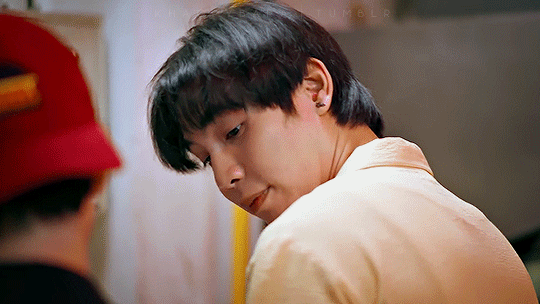






❝I'll be your special someone one day.❞
FIRST KANAPHAN as KANT PATTANAWAT and KHAOTUNG THANAWAT as BISON episode 3 of THE HEART KILLERS
#the heart killers#the heart killers the series#first kanaphan#khaotung thanawat#firstkhao#firstkhaotung#kantbison#gmmtv series#gmmtv bl#thai bl#mlm#thkedit#th: the heart killers#bibi gifs#userrlana#tusermona#tuserhidden#tuserrowan#i read people theorizing that fadelbison will use the pin to spy on kant next ep#and you know invasion of privacy and all of that but also#that would juicy#i support that theory#but also#this goes to my bison is puppy coded agenda
204 notes
·
View notes
Text
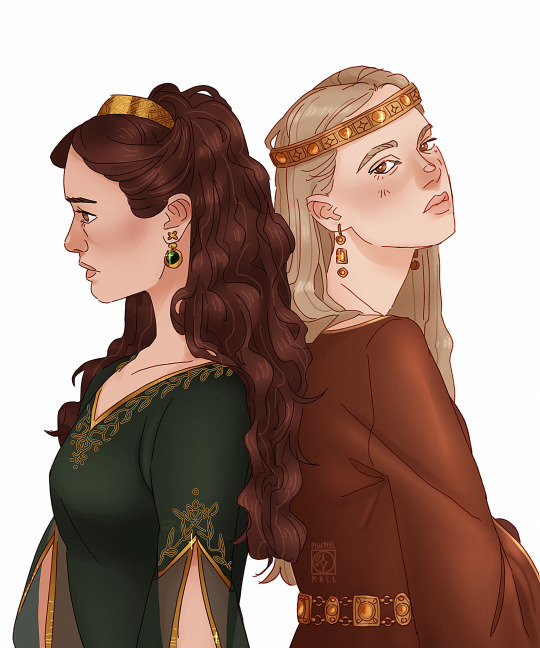
if someone asked me at the end i'd tell them put me back in it darling, i would do it again if i could hold you for a minute
yet another incredible commission by the amazing @murmel-malt, this time of my favourite hotd lesbians, alicent hightower and my oc daena royce, stars of my future fic and though i burn
#fyeahhotdocs#fyeahgameofthronesocs#fyeahgotocs#ocappreciation#ocsnetwork#hotd oc#alicent hightower x oc#alicent hightower#oc: daena royce#fic: and though i burn#can't stop staring at them#they're gorgeous#very hozier coded couple#this is a game of how many unreal unearth: unheard lyrics can i pin to them
437 notes
·
View notes
Text

i love my Basketbot Portal AU
#Basketball is Chell and Robot Flower is Glados#i think GB would be Cave Johnson and TB is prob just her assistant.. and Puffball would be the Turrets (because she sings so beautifully)!!#maybe Flower is Caroline?#The plot would change a bit too... this AU is more like a role insertion and not a complete perfect run of Portal/Portal 2#Basketball would still be trapped by RF to do tests and she would try to get closer to Robot Flower and try to fix her#Basketball is really smart... i think she would admire Robot Flower's innovation and creativity even if shes Evil... they looove each other#they would totally fall in love and date in the end trust#in the end i think Basketball would try to code the personality spheres off of her#maybe each personality sphere could be a character... like Intelligence Core = Pin (cake) or Book (smart and knowledgeable)#Space Core = 8 Ball (in the sense that they both have a fixation on one thing... Space and 8 yknow?)#Morality Core = Teardrop..... or actually maybe Pie? shes apathetic and i think it would be cool#Curiosity Core = Liy or Pillow... in a sense? before her huge killing spree thing i think Pillow was the very curious and experimental type#im not completely sure for Wheatley... ill think on it#omg if you read all this thank you sm ive been thinking of this for literal months#btw please tag me if you make art#bfdi#portal#basketbot#basketball x robot flower#basketbot portal au#key rambling
295 notes
·
View notes
Text
“crowley and aziraphale aren’t sexual” oh yeah? then explain this. that’s what i thought
#pinned#‘us time’ was code for get day drunk and railed across the bookshop btw#i should have internet privileges revoked#good omens#thoughts
1K notes
·
View notes
Text
Home Away From
I love hopeless agony almost as much as tooth rotting fluff??
Post-kidnapping Angel adjusting (badly) to the new normal.
might do a part 2 where it gets even worse idk ← my last words before i get thrown out of the plane
Kidnapping, imprisonment, codependency, etc.
proceed with caution
Eyes straight forward, you had to keep yourself occupied fiddling with the edge of a couch cushion. Every single one had a few loose threads from how often you worried away at them.
Twelve… thirteen… fourteen neatly aligned book spines on the lowest shelf behind the dark haired man kneeling in front of you. A full, hardcover collection of your favorite webcomic, each book signed and dedicated to you. Maybe you'd force yourself to read them all again. For the third time since your arrival.
"Angel."
It was hard to keep track of how long you'd been here—in this house far removed from Corland Bay, with everything you ever wanted in a forever home. All those wild, fantasy-ridden dreams you joked about with Ren, and then [REDACTED], were true now.
And yet your supposed fiancé carried you over the threshold of that forever home kicking and screaming.
"Still not talking?"
His hand reached for yours, fingers gently lacing between your own before you eventually pulled away. You saw their real reaction in the corner of your vision. By now, you knew him as obsessively as he knew you—there wasn't much he could hide anymore. The pain in his blue eyes lingered for too long this time.
It hurt. You hated to see that look on his face. But you hated being trapped here so much more than that. Why couldn't he understand?
Realistically, a silent treatment would get you nowhere. A few hours had turned to days, then weeks, and he was still soft-spoken and doting towards you. There was hardly a difference in the man you proposed to, and the one that bolted the front door shut from the outside on the few occasions they left for supplies.
You were too used to domestic life, too docile compared to that first day—sometimes you'd lose yourself and forget you were a prisoner. All your old hobbies still occupied your days while he sat nearby, and it just felt natural to include the only person you ever saw. To call his name and read a passage from a book aloud for him to laugh, or casually scoot closer to him for warmth during a movie.
Those moments when you forgot felt like they could slot in between all your old memories with ease.
"I'm sorry, love. I only wanted t'keep you safe," he whispered.
His breath almost tickled your legs, followed by the feel of his forehead resting against them. The urge to brush a hand through their hair—an innocent gesture you did at least daily back home—hurt just as much to ignore.
Were it not for their words of apology, even now could've been another memory. Who could fault you for falling into habits of comfort with the one who lived for you, and you alone?
The silent treatment was the best you could do.
💜🖤💜🖤💜🖤
Tired and disoriented, you woke up alone in your bedroom. The pink haired plushie you normally cuddled had disappeared somewhere, probably tossed to a corner of the room in your fitful sleep. Your usual replacement for a space heater was nowhere to be found, either.
Had he stayed up late? You called their name. "Ren?"
A muted commotion in the hallway outside, then the door creaked open. "Angel?" your beloved hacker answered back cautiously.
"Are you coming to bed?"
There was no response for a long moment. But soon enough, his familiar footsteps sounded against the floor.
You sat up and pulled the blanket to the side for them. As he settled in, you cuddled close, resting one arm over their chest while your head laid in its rightful place atop his shoulder. You managed to lean up and find their lips for a quick kiss before closing your eyes.
Though you couldn't see his face, you imagined the blush that painted his cheeks at every piece of affection you gave. With the thought fresh in your mind, you drifted off.
💜🖤💜🖤💜🖤
Hours later you woke again, your rest this time far more peaceful in their embrace. A pitiful, lazy groan left you as you stretched, then opened your eyes to greet your partner.
[REDACTED] was silently looking down at you, propped up on one arm.
You reached up to cup his cheek and smiled at him. He leaned into your touch like always, but their usual loving gaze was laced with hesitation. As if waiting for something. Anxious of what could bother him, your hand followed the line of his jaw down to their neck, past the tattooed heart of your name, and settled on a piece of jewelry.
Was that correct? It felt off. A long moment passed as you fiddled with it, trying to figure out what was so out of place about that silver chain, until it hit you.
The golden ring was back on his necklace, instead of on your finger where it belonged. Where it used to belong.
Weeks, or maybe even months ago, when they kept you in a careful hold while locking the bedroom door behind them—you'd thrown that ring in his face the second he let you go.
For all the scratches and bite marks you'd put on his arm, tearing at skin that was already long scarred, he hadn't shown a hint of worry. Not until they bent down to get the ring that hit their chest and clattered to the floor.
It was the same worried face you saw now.
Your hand stilled, and before you could even whisper the words you wanted to yell, he slipped from the bed to give you space. The door clicked shut behind them to trap you in with your thoughts.
How could you be so stupid? Weak? They didn't have to try at all to wear you down; you did it all on your own. He tore you away from friends and family, yet here you were, forgetting yourself to play house with him. Then you took it a step further and let him sleep in your bed.
Nails dug into the pillow under your head, but instead of throwing it you squeezed it tight to your chest. You bit your lip to hold back the tears, glaring down at the empty spot on your ring finger that had only now begun to match the skin around it.
Another foolish dream to pile with all the others.
As much as you wanted to hope they would see reason one day and bring you back home to make things right—a thought far past irrational by now—you had to mourn the life taken from you.
You knew them, you knew them. Always seeking your favor so quickly that any argument quelled before it had a chance to begin, but stubborn when he felt it necessary.
If the first answer was a no… the next one and the next one wouldn't change. You should've accepted it the second he locked the door.
Ren was the only person you'd ever see again.
#14 days with you#14dwy redacted#14dwy#14dwy ren#momo writing#this is self indulgence too but the kind where i hate myself???#<- i mean this in a nice way ok#red title = no one has a good time not even ren#da color coding is mostly for me actually#since i WRITE TOO FUCKING MUCH i can't even find my own shit!!!#not using my own pinned post bc i just wanna scroll endlessly ooo i'm a little clown#yet again why am i like this
192 notes
·
View notes
Text
before and after pics of a gas mask bag i got at an antique store a couple years ago, wasn’t quite happy with how I decorated it so i decided to rework it

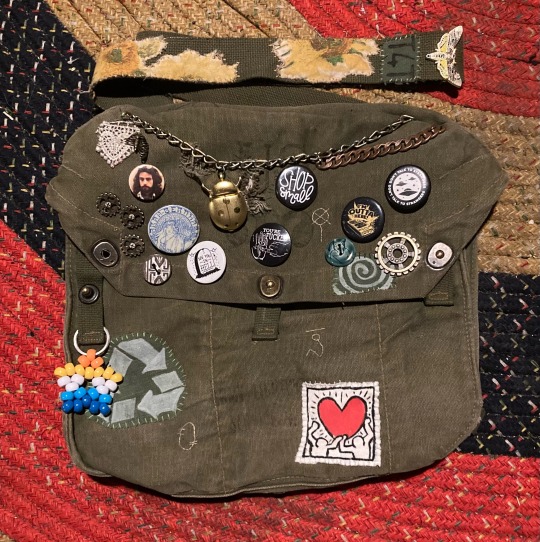
i painted all the patches except for the sunflowers on the strap of the bag, those were leftover fabric from a t-shirt i used to make the back patch for my vest
the buttons i bought while working at faire this year and one of the pins and the aroace star was made by one of my partners :-)
#pins and needles#diys#diy patches#queer punk#solarpunk#eco punk#diy punk#punk diy#i think i’m funny for putting a pin of gunpowder tim on a gas mask bag#i need to find more lace to patch it up a bit more#the embroidered symbols are scp and serpents hand field code#they mean nonhuman. safe place to rest and seek help here
174 notes
·
View notes
Text
The Loyal Pin - Episode 6
The first reason I loved this episode was the fact that this episode began with the girls not only switching patterns (floral vs. lines) but also switching positions.

The second reason I loved this episode was Prik being extra by making noises and motions just to let Pin know that she knew what the lesbians were doing, and it wasn't sleeping.
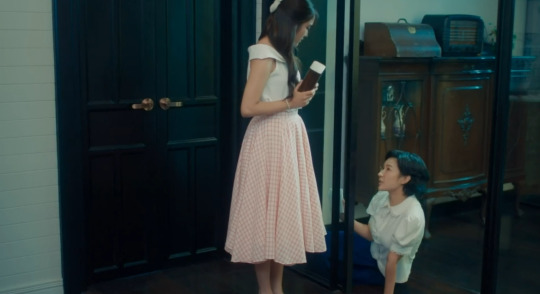
And the third reason I loved this episode was THE SEX!
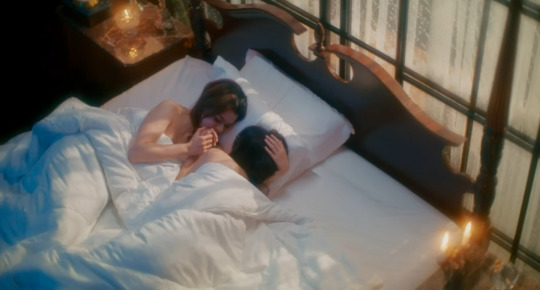
Pin and Anin kissing each other wherever and whenever is the kind of romantic storytelling I want to see!
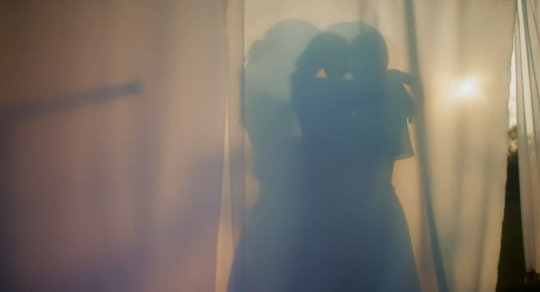
And Pin and Anin having sex wherever and whenever is the kind of historical GL storytelling I want to see.
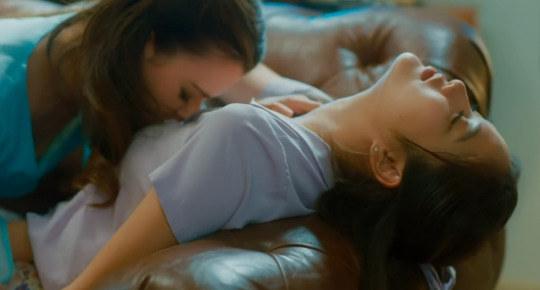
But as happy as I am that Pink Person Pin wore purple to combine her and Blue Beauty Anin's color,
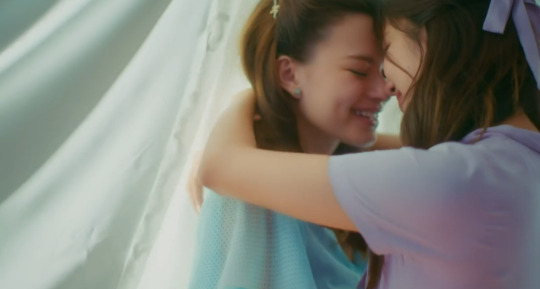
And that they went on a a little date that paralleled the date that they had before Anin left for England the first time,
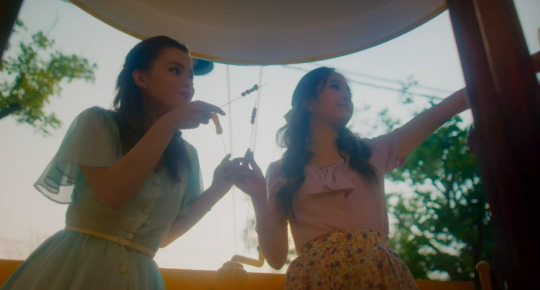
There are still color-coded forces (unintentionally) standing between them.
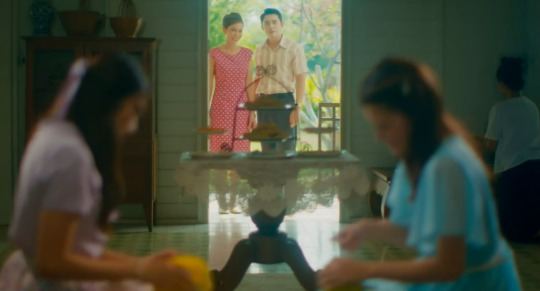
So even though these color-coded girls are in love
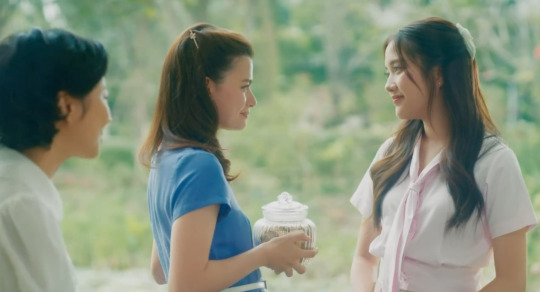
And having great sex about it,
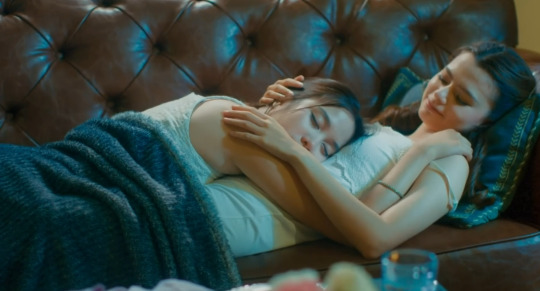
Other people will continue to be whole ass problems for them!

(Not Pranot though. He sits at the same table with Prik since they are the only two people who seem to already support queer rights and wrongs!)

Because Anin's color-coded brother is being a big problem!
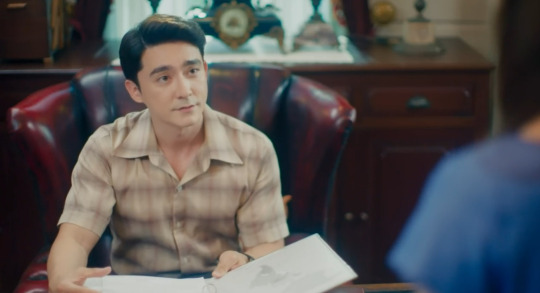
Anon has been consistently red color-coded, but Anin's oldest brother, Anantawut, who was once blue like her, stayed entirely brown this episode.
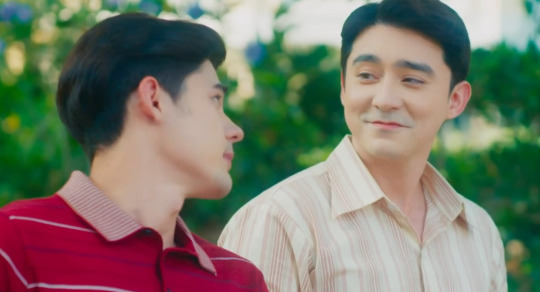
Which could be an issue if it means he'll become more traditional, conservative, and predictable.

And although I don't think Pin's mom ever means any harm, she is the epitome of femininity and womanhood.
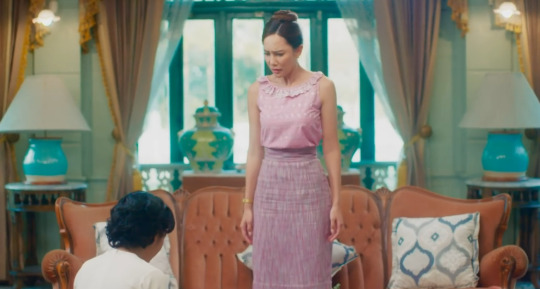
She can cook. She can clean. She can manage an entire compound of servants all while looking docile, so as much as I love that Pin received the ruby set from Anin's mom for her birthday,
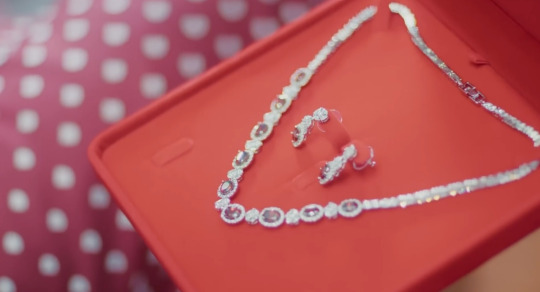
It feels like the jewelry is the first real step into chaining down Pin into a traditional role of womanhood like her mother since this came after the conversation about Pin and Anin needing to get married sooner rather than later.

Normally, red would be passion and heart, which is nice that Anin decided to put red berries on Pin's cake to show her she loved Pin.

But Pin lost her color a bit this episode when she became depressed that Anin was leaving again. Only the tiniest bit of pink lingered at the edge of her dress.

So I think her mother will be even more adamant that Pin get married so she will be too preoccupied with her husband and (new color) to dwell on her best friend being gone, but I think there is an ally in our royal midst!

Anantawut's new wife also seems like the epitome of femininity and womanhood because she can cook, clean, and take care of her prince.

But when I look closer, she is wearing pink AND blue.
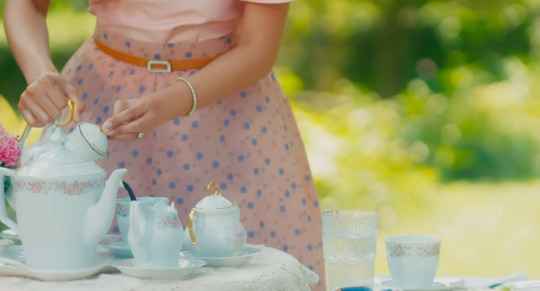
And at the lunch where marriage is discussed, she is, once again, wearing pink and blue with a purple skirt (pictured above)
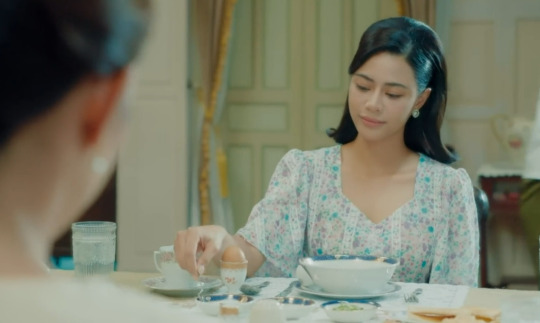
So even though Blue Beauty Anin doesn't have control of her circumstances now.
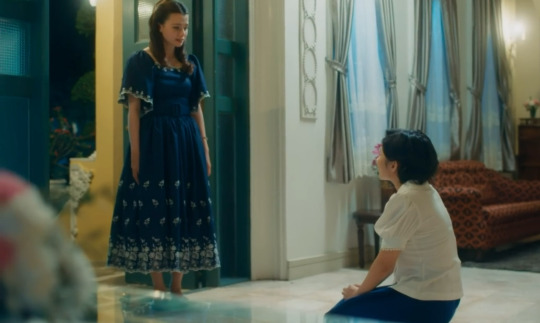
And neither does Pink Person Pin (who did not deserve to be left without a goodbye!)

I have faith that someone in this family will be able to support the girls when the times come because Prik can't be the only person in this house I respect.
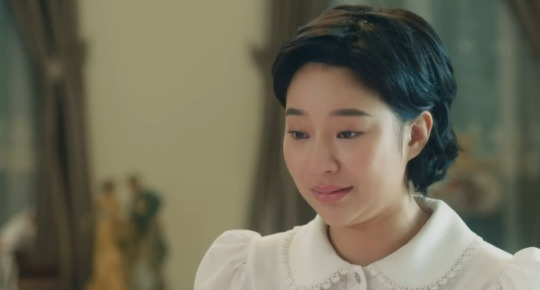
Right?

#Oh Aninlaphat! We're really in it now.#the loyal pin#I'm obsessed#color coded girls in love#the colors mean things#SUCH GOOD COLOR-CODING!#but what does it all mean?#episode six#because I am stressed that Pin's mom wasn't in her colors last week#and now this week Anin's oldest brother is entirely in brown#let his wife be an ally#PLEASE!#Prik needs a new homie
158 notes
·
View notes
Text


One week left to preorder my Revolutionary Girl Utena and Code Geass pins! Preorders close on July 28th.
🌹 Revolutionary Girl Utena: link
🌻 Code Geass: link
#revolutionary girl utena#code geass#my art#utenanthy#suzalulu#enamel pins#ahh excited to get these made soon!
260 notes
·
View notes
Text












okay everyone!!!!! the time is here!!! gigantic update is now live!! thank you for the support ♡(ʃƪᵕωᵕ)
⭑check it out
#call of duty#simon ghost riley#john soap mactavish#kyle gaz garrick#captain john price#task force 141#t141#ghoap#ghostsoap#cod#mine♥#bunny merch♥#dont forget to use ur discount code if you bought the first ghost pin!!
161 notes
·
View notes
Text
happy pride 🏳️🌈 to closet gay eddie diaz specifically,,, don't worry king we got you 💕
#📌 pinned post#ex catholic closet gay eddie diaz my beloved <3#closet gay eddie diaz#gay eddie diaz#eddie diaz#buddie#pride month#happy pride 🌈#9 1 1#911#queer coded characters#pride#queer#the gay firefighter show#the weewoo show#queerweewoo
315 notes
·
View notes
Text



botanicalbright on instagram
#my gifs#irl hands#enamel pins#pin book#collections#albums#color coded#colorful colorful stim#art stims#flowers#bugs#plants#stimming#stimmy#stims#stim#stim gifset#stimblr#stimmies#asmr#asmrblog#sensory#sensory gifsets#sensory gifset#sensory gifs#sensories#pink#pink stim#orange#orange stim
89 notes
·
View notes
Text
have some kinitoPET content, 'cause why not

a version with YOU

+ a thing and a few YOU doodles
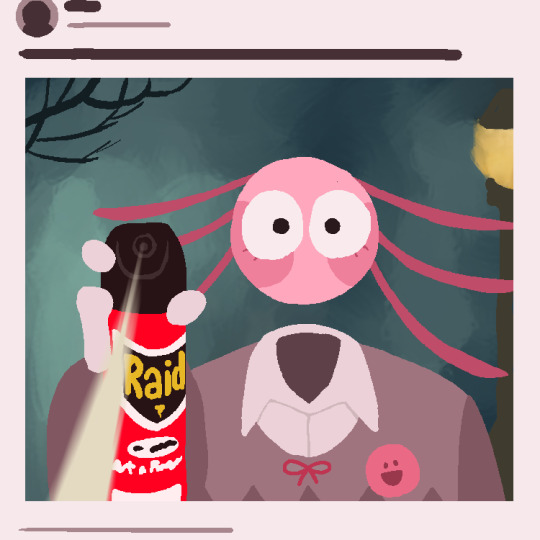
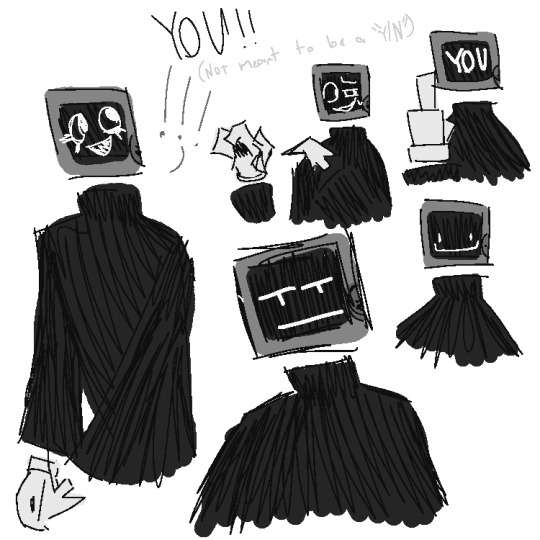
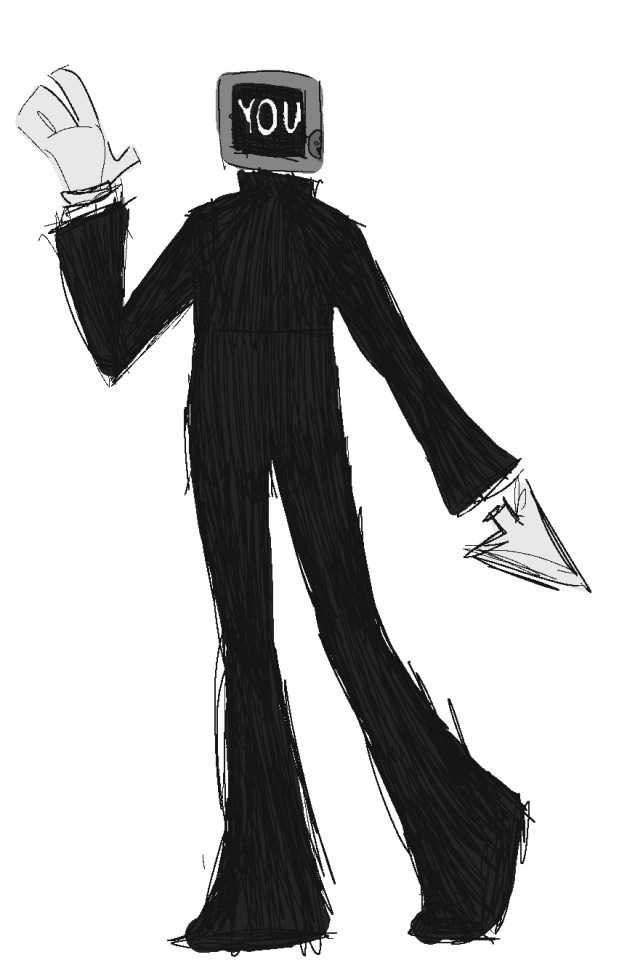
#silverware's art#kinitopet#kinito the axolotl#sam the sea anemone#jade the jellyfish#YOU#(yeah that's what i'm gonna call them)#all caps names are great. dontcha think?#750 pixel by 750 pixel canvases are usually what i draw on and some of these are bigger. i'm not too used to that-#i thought it would be important to mention they're not meant to be a Y/N. they are their own person- that being some random enby person#and their web world avatar CAN emote! however! WHENEVER THEY WANT! ('less they like. forget to actually have the screen display on-)#if they forget (or just don't wanna be like. really fucking expressive i guess-) it just says “YOU”#they all have a smily pin!! (well- YOU has a sticker but whatever-) and yes. kinito having it on his left#and the others having it on their right was.#very intentional#over the heart :)#also YOU having it on the left side!! (i imagine kinito made their avatar and made it match!)#FUN FACT! YOU can change the colour of the display! they just picked white (ik it's off white. but idc) because they know the HEX code#anyways. imma stop yapping lol
401 notes
·
View notes